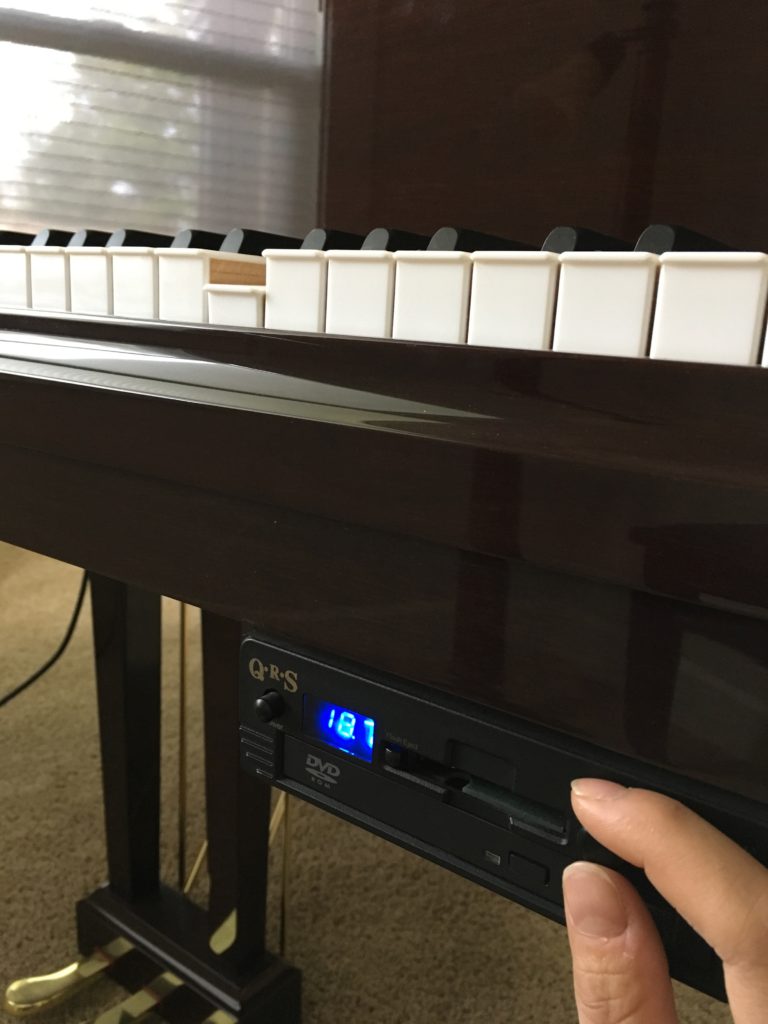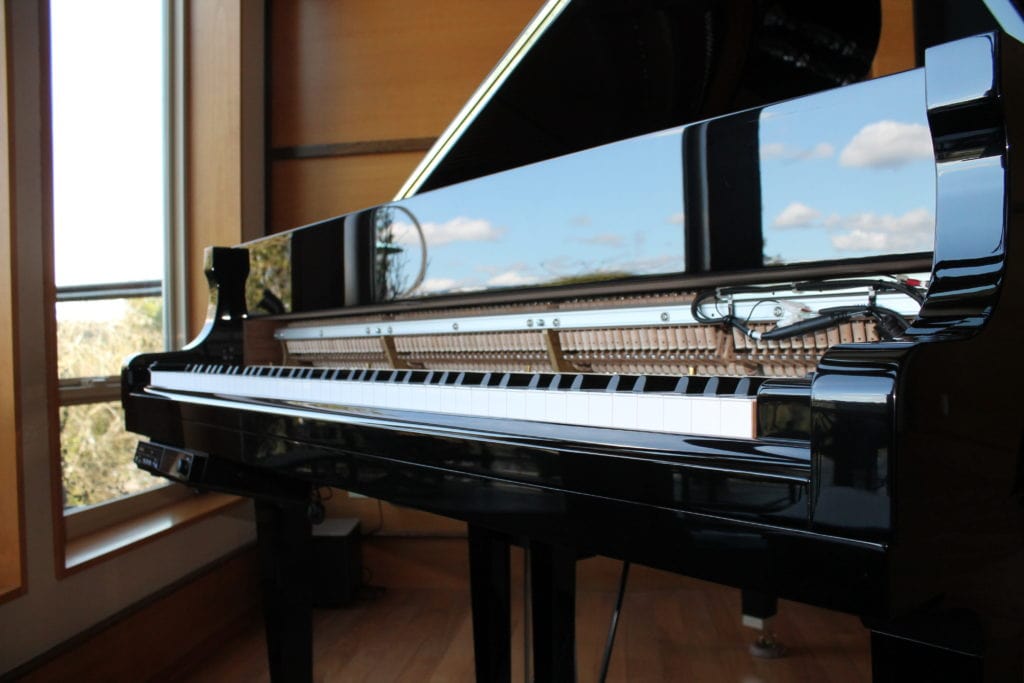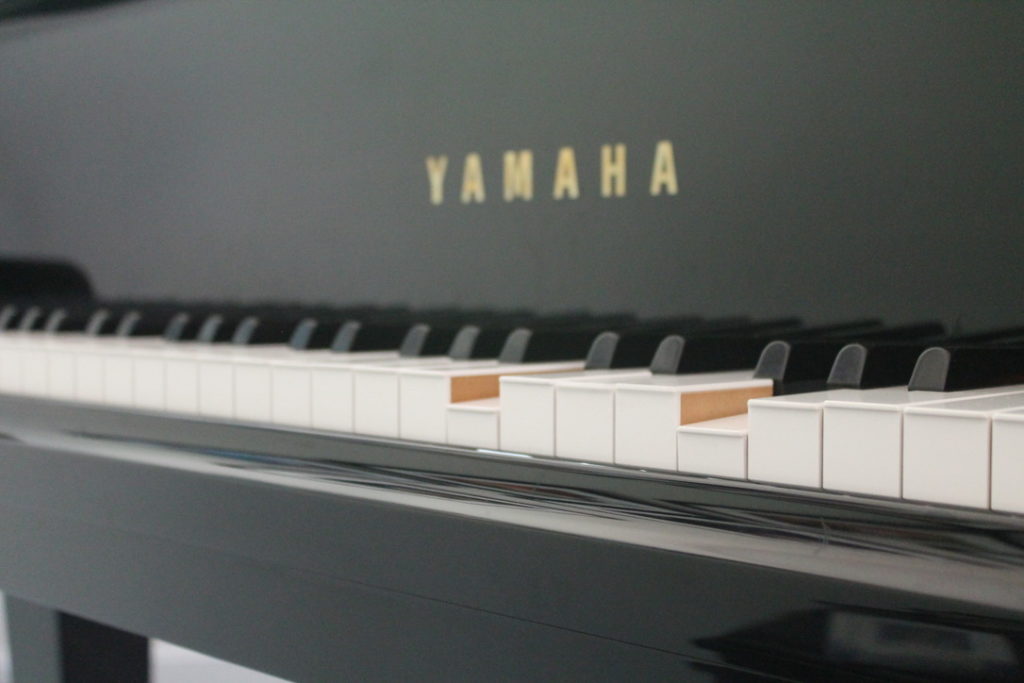Throughout my life as a piano player and my career as a piano technician, I’ve noticed an interesting divide in opinions on player pianos.

Some people think they’re the bees’ knees. I mean, a piano that plays itself (and likely does a lot of other stuff like recording and streaming music over the internet) obviously has a super cool factor to it, right?
Other people are “piano purists”, for lack of a better term, and are of the mindset that a player system messes with the integrity of the piano as a musical instrument, both literally and figuratively.
(I’ll be honest, back in college where I studied music and practiced for hours a day, I was one of those obnoxious, holier-than-thou piano purists. I didn’t understand why anyone would own a piano if they didn’t play it themselves. I’ve learned and grown from my youthful indiscretions, and now truly believe that anyone who loves piano music should be able to enjoy it whether they play the piano themselves or the piano plays for them.)

No matter what your current stance on player pianos may be, when faced with one and all of their cool features when considering a piano purchase, you may be tempted to level up and get one for yourself. But before you make a final decision, there are a few things you should definitely consider:
1. Will you use it?

It sounds like a no brainer, but let’s face it: We all get excited about new things and promise ourselves we will get the most out of them, especially around New Years Day. Then we succumb to the daily grind of work, cat spoiling, Tiny Human temper tantrum management and shuttling, the excitement of Trail Blazers basketball, or maybe just decide that focusing on our tasks at hand is too difficult with piano music playing in the background. Before we know it, the gadget that seemed so cool is gathering dust and taking up valuable space or put in storage. The issue with a player piano is that it is not so easy to put it in the storage shed or Marie Kondo it out of the house.
So, it would be wise to consider whether or not you will truly take advantage of what a player system has to offer. Are you someone who always likes to have music on when working from home or doing chores around the house? Do you love piano music and listen to it regularly? Are you a teacher, composer, or player who would regularly use the educational and record functions as part of your work?
If the answer to all of those questions is no, then perhaps a player piano is not the type of piano you are meant to have in your home. But never fear, there are plenty of other wonderful acoustic pianos out there for you to choose from.
2. Is it worth the money?

In the same vein, it’s important to think about whether or not the added cost of a player system fits into your budget and overall piano needs and desires. At a minimum, the addition of a player system, whether it is built in like a Yamaha Disklavier or an after market system such as PianoDisc and QRS that can be installed on almost any acoustic piano, will add on at least $6,000, not counting the piano itself. Tack on additional features beyond playback such as record and a silent system, and the cost only goes up from there.
Contrary to popular belief, most pianos are not a financially appreciating asset, and that goes double for player pianos since the technology used to power and control the player systems changes so rapidly. But owning a piano in general is not about the financial value. It’s about the value they bring into your home (or church, or restaurant, etc) and your heart.
Is it worth having a system that can record a pianist who performs for an event in your home? What about preserving the songs your children learn and write? On the flip side, is it worth having a silent system so you don’t have to hear your children practicing a difficult section of a Beethoven Sonata over and over again, or so that a late night session won’t disturb your apartment neighbors? What is the value of having live piano music in your home while you work and take care of chores?
This is all to say that a monetary value can’t be placed on the value of a piano (unless you sell them); rather, it’s about whether or not what you value in a piano and piano music can be fulfilled by a player system.
3. Is there a local player piano specialist available?

While it is generally pretty easy to find a quality piano tuner unless you live in a very remote area, it is another thing entirely to find someone to service the electronic components of a player system. If you live in an area where a qualified, experienced player technician is not readily available, would you be willing and/or able shoulder the cost of paying a player specialist to travel to you, possibly multiple times if the issue requires it?
This probably isn’t on the radar of potential buyers when they first look into getting a player piano, but it’s definitely an important consideration. I’ve driven ten hours round trip to service player systems, which is at minimum a very long and full day, but to be at my best as a technician and a safe driver necessitates an overnight stay. I’ll be honest, I love seeing new places and meeting new people, but having to take that kind of time away from my family is a huge expense that will get passed on to the client.
So, it’s definitely important to look into whether or not there is a qualified specialist within a reasonable distance who will be able to take care of your player system when, not if, it needs it.
